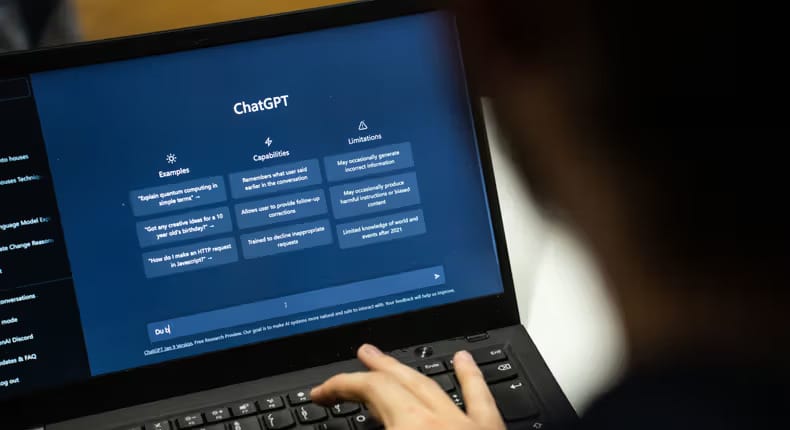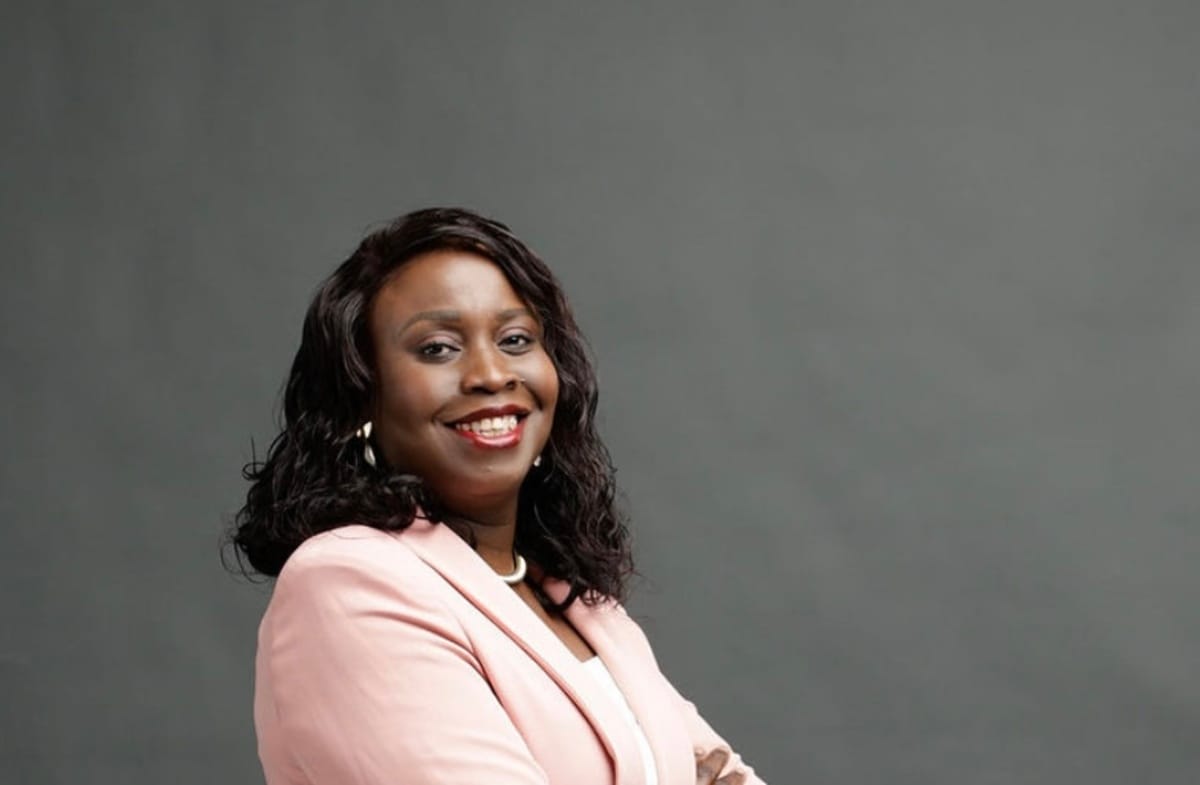THE DISRUPTION
“Why should I keep studying journalism if it’s dying?” A journalism student asked me this in Nairobi earlier this year. I couldn’t brush it off because it could have come from anyone in our industry. It’s the question haunting our profession.
Journalism’s difficult evolution
Journalism is not dying, it’s going through a difficult but necessary evolution. Journalism still matters enormously, perhaps more than ever. It not only provides people with the information they need, it helps them make sense of the world, and also holds those in power accountable.
But it can only continue to have that power - if we, as journalists and media leaders, are willing to let go of what no longer works, but most importantly, brave enough to embrace change and experiment with new ways of working.
Technology has disrupted traditional media models. Revenues are shrinking. Audience consumption habits are changing, with younger generations even drifting away from the traditional sources their parents grew up with and trusted. So we no longer have the luxury of waiting, because they will not wait for us.
I’ve spent more than two decades in this profession, with most of my time at the BBC. I’ve worked as a news producer, editor, and regional head of journalism. I’ve watched the industry shift from linear broadcasting to digital and now to AI. Through it all, one thing has stood out: newsrooms willing to experiment stay relevant. Those that resist disruption lose ground, often scrambling too late to catch up.
Africa’s Challenge, Africa’s Opportunity
While this is a global challenge, we face extra layers of complexity in Africa. Many of our media outlets are often left out of international innovation conversations. We sometimes copy and paste strategies that work in London or New York, but they rarely fit our local social and economic realities.
The reality is that the AI revolution is already upon us, before many newsrooms have even caught up with the last wave of digital change.
But alongside these struggles, I keep seeing some positive glimpses, new formats and innovations in some newsrooms that are working.

A person using ChatGPT. Getty Images
Why The Journovator
That’s what The Journovator is about.
It’s here to:
Inform: track the trends, tools, and shifts reshaping journalism through an African lens.
Inspire: highlight bold ideas and the people driving them.
Innovate: offer practical insights and resources to help you and your newsroom adapt.
AI is one of the most consequential stories of our time, so we will also explore its impact across Africa.
The Journovator is a space for reflection and experimentation. It is a movement for those who believe journalism can and must thrive in the digital age.
Please accept this as a personal invitation, particularly if you’re a student questioning whether to stay in journalism, an editor trying to figure out how to reach elusive audiences, a media leader navigating budget cuts, or an academic researching the media on the continent. The Journovator is your space.
Let’s figure this out together. Subscribe. Please share it with your networks. And yes—become a Journovator.
INNOVATION IN ACTION
One Newsroom, Five Brands, 200 Journalists
Inside Media Trust's AI-powered experiment to end newsroom silos in Nigeria.

Ibrahim Shehu. Courtesy Photo
Innovation in Action takes you inside newsrooms, trying new things. Each feature shows you their experiments with AI and new approaches, the tools they picked, the people making it happen, and the honest results. The wins, the failures, the lessons worth stealing. The aim is to give you the confidence to try something new in your own newsroom.
In this edition, we speak to Ibrahim Shehu from Media Trust Group in Nigeria.
Ibrahim Shehu Adamu is running one of Nigeria's boldest editorial experiments. As Editorial Director at Media Trust Group, he's leading the establishment of what may be the country's first truly converged newsroom—a single editorial system uniting five distinct brands: Daily Trust, Trust TV, Trust Radio, Aminiya Hausa, and Digital Trust. More than 200 journalists across Nigeria now work through it.
The backbone is a custom-built content management system developed and tailored specifically for Media Trust. “We were producing excellent journalism across multiple platforms: print, TV, radio, online - but in silos,” Ibrahim recalls. “This duplication wasted resources and slowed us down. We needed a system that would unify workflows, improve efficiency, and create multiple revenue opportunities from the same content.”
What he's built might be the future of Nigerian newsrooms. He explained to me how it works and the difference it’s already making.
How the system actually works
The Content Management System (CMS) weaves artificial intelligence into daily editorial workflows. Journalists file their stories into the system as usual, but from there, the process changes. The system suggests headlines, runs grammar and style checks, and instantly adapts copy for both English and Hausa using a tool called Trellis. Radar and Echo desks then repackage material for social or video, while editors oversee and approve. Once approved by editors, the content is published seamlessly across all platforms.
Take a breaking news story from Abuja. In the old system, that story would be written separately for Daily Trust's print edition, rewritten for the website, adapted again for TV, and possibly translated into Hausa for Aminiya. Today, one journalist files it once, and the system does the rest.
“It’s a co-pilot,” Ibrahim says, careful to stress that machines don’t replace human judgment. “The best use is when journalists use AI as a co-pilot, not a substitute.”
Behind the scenes, the system also tags metadata for SEO and archiving, and provides real-time dashboards showing editors and the sales team what's working and what's not.
But technology alone wasn’t enough. Making it work meant building trust in the system, and that required putting editorial guardrails in place from day one.
Editorial controls by design
“Unlike off-the-shelf tools, this was built around our specific needs,” Ibrahim explains. “The team trained the system on Media Trust’s editorial manual and years of archived content to preserve our house style. All AI outputs appear as suggestions, not final copy. Nothing gets published without human editorial approval. Data security and privacy are also built in.”
That level of control helped ease fears in a newsroom that was initially deeply skeptical of automation.
Winning over a cautious team
Not everyone welcomed it at first. “Yes, there was resistance,” Ibrahim admits. “Some colleagues feared AI would replace them. However, during pilot phases, we demonstrated that the CMS is only capable of handling repetitive tasks, such as translations, metadata, and SEO. The heart of journalism remained unchanged: reporting, judgment, and context. After the pilots, adoption improved,” Ibrahim notes.
Faster, broader, deeper
The change has been significant. Social posts are ready within five minutes of filing. Stories are tailored quickly for TV, radio, print, and digital. Overall, production workflows are 20 to 25 percent faster. Around 40 percent more stories are now optimised for search and social, which has helped increase ad revenue. And he says crucially, reporters now have more time for deeper investigations.
Unexpected gains
There have also been some unexpected gains. The system’s ability to automatically tag archives has opened up the possibility of licensing and monetising historical content, which is a new revenue stream few had even considered. “That was an unexpected benefit,” Ibrahim says. Perhaps more significant is a cultural shift that's harder to quantify. Journalists are starting to think about audience and revenue as they write, and not after publication, but during the reporting process itself. It's a quiet change, but one that could reshape how the newsroom operates long-term.
Where AI still falls short
The system isn’t perfect. Real-time Hausa translation occasionally mangles idioms. Integration with ad-sales tools remains incomplete. Personalisation for readers still needs work.
“We still rely on journalists for context-heavy analysis, political nuance, and ethical decisions—especially in conflict reporting,” Ibrahim says. “And for investigative stories, human instinct is irreplaceable.”
What’s next?
Ibrahim is clear about where this is heading. Within a year, he wants digital revenue to account for 30-35 percent of the group’s income. Plans include launching a freemium model inside the CMS, and monetising fully tagged archives, as well as experimenting with audience engagement tools — from quizzes and polls to niche communities around farming or halal living. Beyond Media Trust, Ibrahim sees potential to license the system to smaller newsrooms across Nigeria and West Africa, either as a paid product or through a consortium model where costs are shared.
What smaller newsrooms need to start
Could a smaller newsroom afford something like this?
“Yes, but they’d probably need a scaled-down version,” Ibrahim says. “They could start with tools like Grammarly, Trellis, and a lightweight CMS. They may not need archive licensing at scale, but they can still automate SEO and translation.” The basics that save the most time.
The minimum team? An engineer and a product manager who understand both AI and editorial needs. Add licenses for Grammarly and Trellis, a scalable CMS, and basic metadata tools. With that setup, you can expect a six- to nine-month timeframe to get it running.
Advice for newsroom leaders
What would he say to editors still on the fence about AI?
His advice for other newsroom leaders is practical and straightforward. “Start with your editorial manual as the foundation. Don’t automate everything. Keep human checkpoints. And for sustainability, think beyond publishing: build tools that also support audience data, archives, and sales.”
For Ibrahim, technology matters, but it's not the point. The point is keeping Nigerian journalism relevant, sustainable, and impactful.
"We needed to stop duplicating effort and start working smarter," he says. "Now we can focus our energy on producing the journalism that actually matters"
🚀OPPORTUNITIES WORTH KNOWING
The good stuff: upcoming events, grants, training programs, jobs, and more
▶Data Journalism Workshop at Wits: Join the Wits Centre for Journalism’s upcoming one-day workshop designed to equip financial journalists and communicators with techniques to transform dry, complex financial data into compelling, engaging stories that resonate with their audiences.
📅 When: Wednesday 19 November, 9am to 4pm.
📍 Where: 12th floor, Wits Centre for Journalism, Es'kia Mphahlele Building (Wits Arts Museum), Braamfontein, JHB.
💰 Cost: ZAR 1,200.
📩 Secure your place: [email protected]
▶ Fact-Checking Fellowship at Africa Check: Africa Check, in partnership with Konrad-Adenauer-Stiftung, is offering a 12-day Fact-Checking Fellowship Programme in November 2025.
📍 Location: Africa Check’s offices, Nairobi, Kenya
🌍 Open to: African fact-checkers & journalists with a strong interest in fact-checking
🗓 Deadline to apply: 10 October 2025
Don’t miss this chance to sharpen your skills and learn from experts in the field.
👉 Apply now: https://lnkd.in/dBnDBdaN
▶💲 Environment Reporting Grants: The Pulitzer Center is accepting applications for Our Work/Environment reporting grants:
👉🏾For writers, photographers, radio producers, and filmmakers
👉🏾Projects to highlight climate change and its effects on workers/ work.
👉🏾Grants cover hard costs reporting project
Deadline: Rolling
▶Elevate Scholarships for media professionals: The INMA Elevate Scholarships, supported by Google News Initiative, offer early to mid career journalists from underrepresented groups free training, mentorship, and a yearlong INMA membership to strengthen their place in the news industry.
▶ Thuthuka; Filmmakers from South Africa : The program supports the development and production of feature films, feature-length documentary and animated films:
👉🏾Projects must have South African and Dutch content
👉🏾Projects must have high cinematic quality and international audience appeal
👉🏾Up to €40,000 for development
👉🏾Up to €250,000 for feature films
👉🏾Up to €100,000 for documentaries
Deadline: 7 Oct
This Issue Brought to You By Reebo Consult
We work with media organisations to turn big ideas into real impact — integrating AI, navigating digital shifts, and rethinking editorial strategy for the future. Curious about what that could look like for you? Let’s connect. Send me an email.
Help us keep sharing real stories
▶ Know someone who’d love this? Forward it their way.
▶ Was this email forwarded to you?
1
